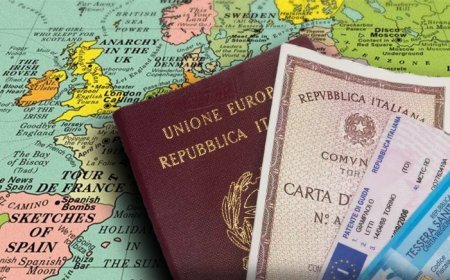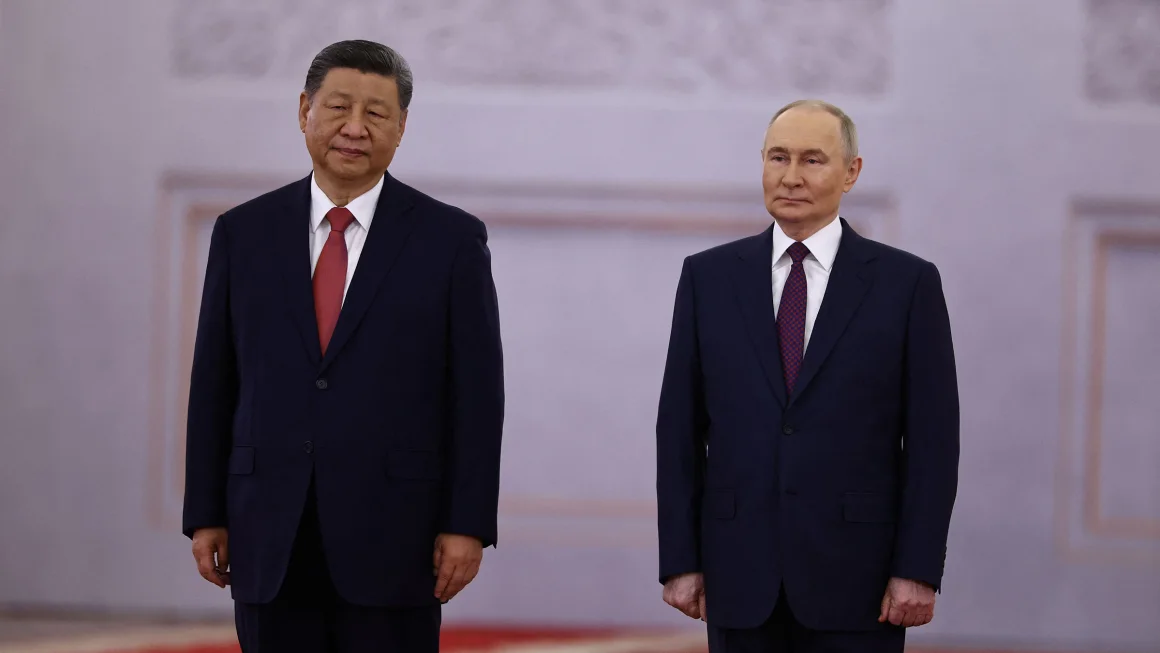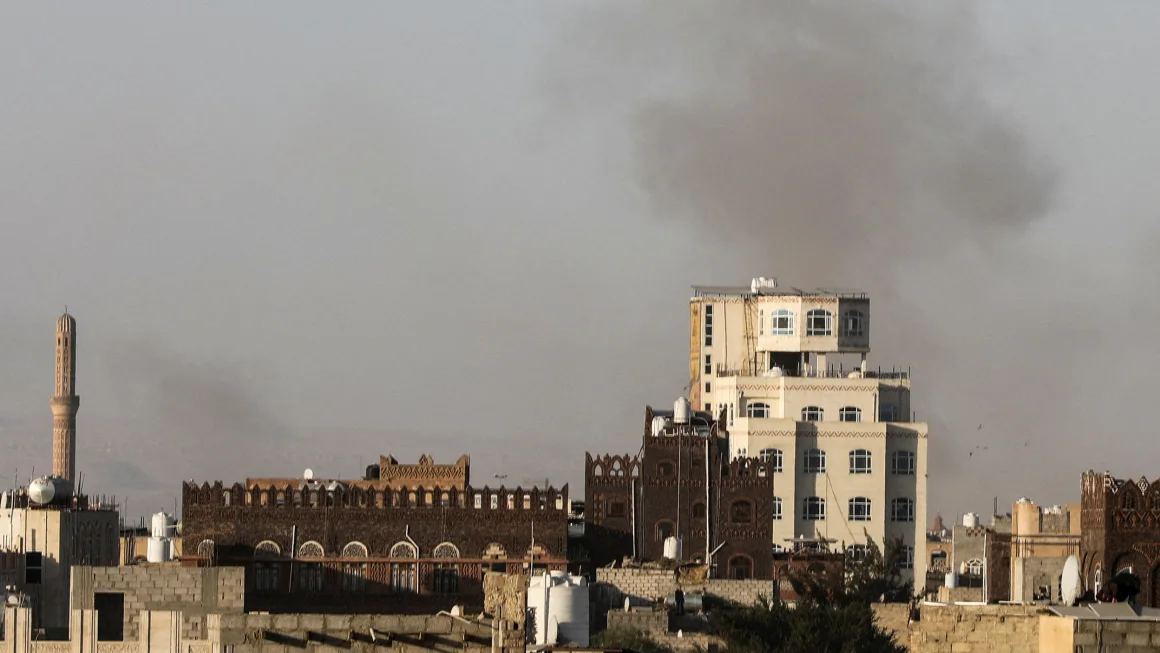How online scam warlords have made China start to lose patience with Myanmar’s junta
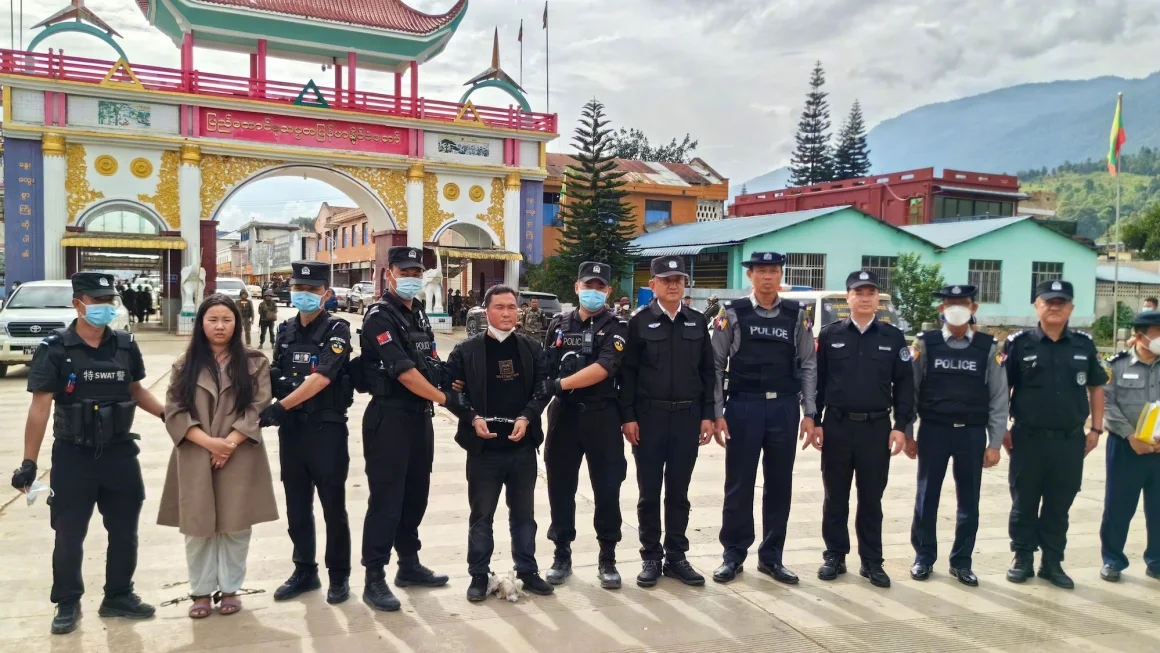
The impoverished Southeast Asian nation has long been a trouble spot on China’s southwestern border. For decades Beijing’s leaders have played a careful game of backing Myanmar’s military regimes – lending them much-needed economic, military and diplomatic support, including at the United Nations – whilst also maintaining close ties to powerful rebel militias along its borders.
But Beijing’s frustration has been building with Naypyidaw’s generals who seized power in 2021, overthrowing a democratically elected government that Beijing had built close relations with, and resurrecting the kind of isolated junta rule that Myanmar’s people had spent decades living under.
The deeply unpopular regime has since been busy fighting a vicious civil war, struggling to govern growing swathes of its territory or deliver on Beijing’s economic and strategic interests there, including an ambitious infrastructure corridor aimed at connecting China’s landlocked southwest with the Indian Ocean.
In recent months, that displeasure has reached new heights as the junta dragged its feet on a pressing security priority for Beijing: shutting down the infamous online scam centers that have proliferated along its border with Myanmar.
The country’s mountainous borderlands have long been a haven for gambling, drugs and the trafficking of both humans and wildlife. But since the Covid-19 pandemic, online scam operations – many run by Chinese organized crime bosses – have flourished.
In heavily guarded compounds controlled by local warlords, tens of thousands of people, mainly Chinese, have been trapped and forced by criminal gangs to defraud strangers with sophisticated schemes over the internet.
Beijing has pressed Myanmar’s military government to rein in the scam operations with little success.
Things started to change in late October, when an alliance of ethnic rebel groups launched a major offensive – dubbed Operation 1027 – against the junta.
As the ethnic militias captured towns and military posts in the northern Shan state, numerous scam compounds near the Chinese border were liberated. Thousands of trafficked victims have been sent back to China, along with suspected ringleaders, according to Chinese authorities and the triumphant militias.
Powerful warlord families, backed by the junta and once deemed untouchable by the law, are now in the custody of Chinese police.
“China has been leveraging Operation 1027 in order to maximize pressure on the military regime to compel it to begin a crackdown on cross-border crime that targets Chinese nationals,” said Jason Tower, Myanmar country director of the United States Institute of Peace (USIP).
Last week, Beijing said it helped the junta broker a temporary ceasefire with the rebels, after arranging for the two sides to meet in China for peace talks.
But Beijing’s assistance has carried a heavy price tag – the downfall of the remaining crime families the junta had relied on to rule the border region.
‘Tacit support’
China’s growing frustration with the junta over its failure to tackle the scam industry was not lost on the ethnic rebels as they planned their attack for October 27.
In announcing the offensive, the armed ethnic groups – collectively called the Three Brotherhood Alliance – cited the need to take out the massive scam operations as a major justification.
The alliance pledged to not only overthrow the military dictatorship, but also “eradicate telecom fraud, scam dens and their patrons nationwide, including in areas along the China-Myanmar border” – a message experts say was clearly intended for Beijing.
China began publicly pushing the junta to crack down on cross-border crime targeting Chinese nationals in May, when then Foreign Minister Qin Gang visited Myanmar’s capital Naypyidaw and raised the issue with army chief Gen. Min Aung Hlaing.
“For that to fall on deaf ears for several months, and for the criminal activity to continue, I think it ultimately played a role in China giving some tacit support to Operation 1027,” said Tower, the expert at USIP.
For much of this year, Chinese officials have urged the ethnic armed groups to restrain from escalating the conflict and to sit down for negotiations with the military – which led to a few meetings between the two sides, according to Tower.
“This seems to have changed pretty dramatically after October. China’s frustration (with the junta) is ultimately what led to it lifting that pressure. And once that pressure was lifted, something like Operation 1027 became possible,” he said.
One key hub for the scam syndicates was Kokang, a region home to many ethnic Han Chinese and controlled by the Myanmar military through the Kokang Border Guard Force. The militia was established by junta chief Min Aung Hlaing to rule Kokang after he led a military operation in 2009 to oust the Myanmar National Democratic Alliance Army (MNDAA).
The MNDAA, a predominantly ethnic Chinese armed group, is now a key player in the Three Brotherhood Alliance taking back territory in the region.
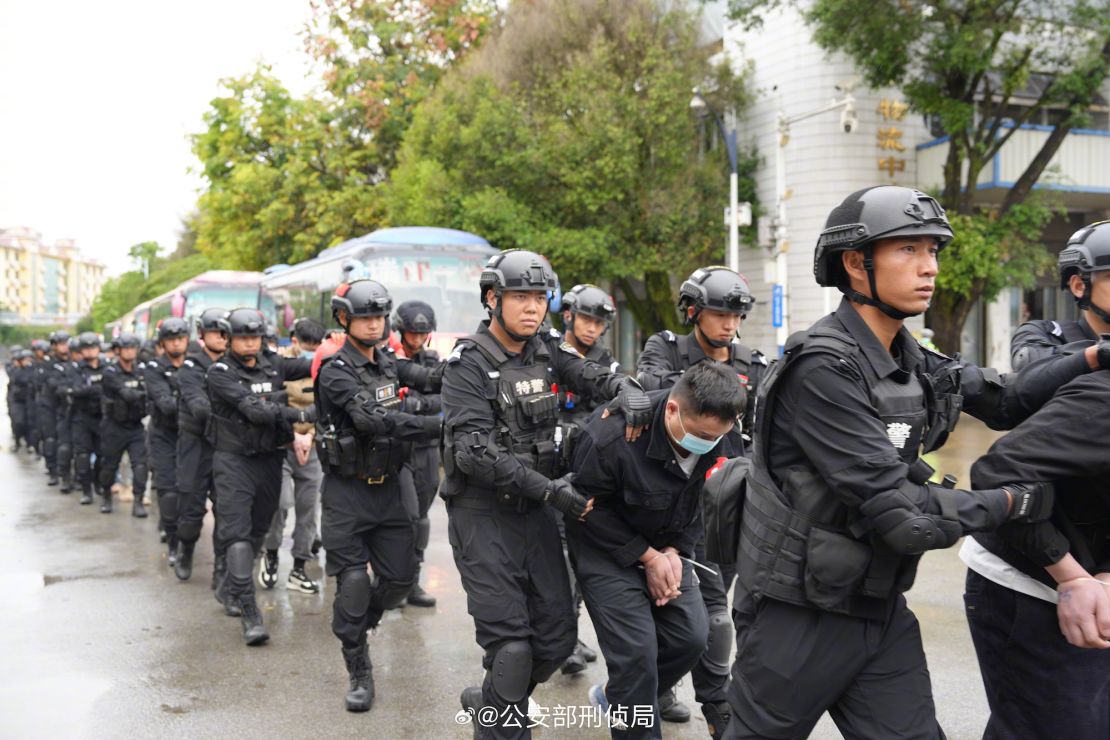
‘Last straw’
Experts say a particularly brutal incident in Kokang’s capital Laukkaing, a glistening casino city bordering China’s Yunnan province that has descended in recent years into a lawless hub for internet fraud, was another major test of Beijing’s patience.
According to local media reports in Myanmar and Thailand, in the small hours of October 20, multiple Chinese citizens were shot and killed by guards during an attempted escape from a scam center in Laukkaing.
Those reports soon began circulating on Chinese social media.
Four undercover Chinese police officers were rumored to be among the victims – a claim that was shared online by Hu Xijin, former editor-in-chief of state-run tabloid Global Times.
According to Chinese state media, the compound, Crouching Tiger Villa, was run by Ming Xuechang, a former Kokang official and head of a powerful family whose members hold prominent positions in the local government and junta militia.
“I think that was kind of the last straw that led to China more or less greenlighting this operation,” Tower said.
Four days after the launch of Operation 1027, China’s Minister of Public Security Wang Xiaohong arrived in Naypyidaw. In a meeting with Min Aung Hlaing, the Chinese police chief said law enforcement agencies in both countries would strengthen cooperation to crack down on cyber scams and online gambling.
Then in mid-November, Chinese police issued arrest warrants for Ming and his three relatives, including his son, who is a leader in the Kokang Border Guard Force. They were accused of running scam hubs that target Chinese citizens and openly using armed forces to protect their operations.
Days later, the three relatives were handed over the border and taken into Chinese custody, while Ming reportedly took his own life before he could be arrested, according to China’s state broadcaster CCTV.
As of late November, authorities in Myanmar had handed over 31,000 suspects to China since authorities from both countries launched a crackdown on online scams in September, according to China’s Ministry of Public Security. The vast majority of those suspects were handed back after Operation 1027.
Richard Horsey, senior adviser on Myanmar for the International Crisis Group, said the crackdown on scam centers had in the short term assumed a higher priority than peace on the border for China.
“China has calculated that it is worth a short-term period of instability and conflict on the border in order to shut down the scam centers,” he said. “But I don’t think China wants this conflict to continue longer than necessary…(or) to spread wider than necessary.”
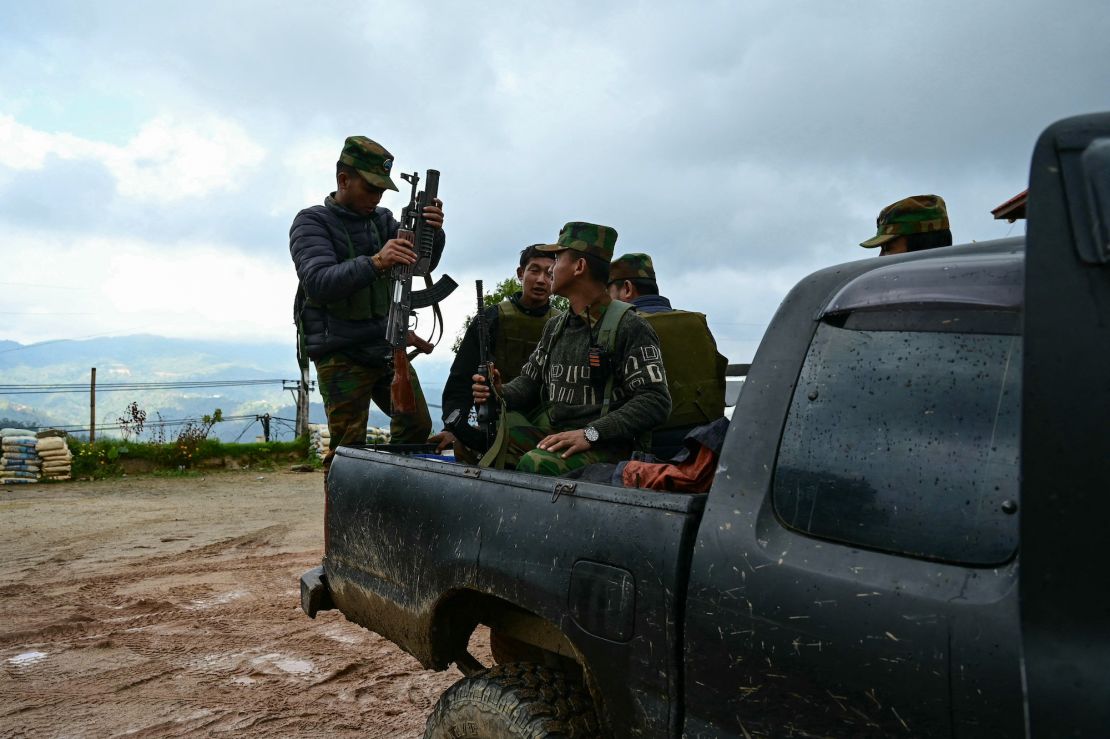
Peace talks
In public, China has repeatedly called for de-escalation of the conflict in Myanmar. Announcing the temporary ceasefire on Thursday, a spokesperson for China’s Foreign Ministry said Beijing had been making “relentless efforts to promote talks to end the fighting” since it broke out in October.
But experts say in practice, Beijing had taken a largely hands-off approach until earlier this month.
China’s sudden involvement in peace talks may reflect Beijing’s calculation shifting again, experts say. The rebel offensive in Shan was hugely successful – and other insurgent groups launched their own attacks elsewhere across Myanmar, spreading the junta’s already stretched forces even thinner.
“Chinese authorities likely did not expect that the operation would result in the complete disruption of the lucrative China-Myanmar border trade, nor did they expect that it would ripple across the entire country, causing the Myanmar military to lose hundreds of posts and suffer unprecedented battlefield losses,” said Tower.
Beijing is increasingly concerned that the prolonged disruption to border trade would deal a serious blow to the already struggling economy in southwest China, especially the border province of Yunnan; the ongoing conflict could also undermine China’s energy security, as many of its southwestern provinces rely on the China-Myanmar pipeline for access to oil and gas, according to Tower.
Those concerns have likely played a role in China’s decision to help the junta broker the peace talks with the Three Brotherhood Alliance. But Beijing’s help came at a heavy price.
On December 10, the day before the military government revealed it held talks with the rebels with the help of China, the Chinese police issued a fresh batch of arrest warrants for 10 alleged “ringleaders” of Kokang’s online scams syndicates accused of fraud, murder and trafficking.
The 10 hail from powerful families in Kokang, including leaders in the Border Guard Force that controls what remains of one of the junta’s most important border zones with China.
The most prominent figure among them is Bai Suocheng, who defected from the MNDAA and partnered with Min Aung Hlaing to establish Myanmar army control over the region back in 2009.
Experts say China is effectively using the warrants to force the junta to quietly exit Kokang and hand the territory back to the MNDAA.
“These warrants put the Myanmar army in an extremely difficult position. As the Myanmar army cannot control Kokang without its Border Guard Force leaders, handing them over to the Chinese side amounts to surrendering Kokang over to the MNDAA and its allies,” Tower said.
Horsey at the International Crisis Group said the ceasefire could be the final act in MNDAA’s dramatic takeover of Kokang.
“The Myanmar military is now constrained from launching any counterattack, but able to safely withdraw its forces,” he said. “But there are many moving parts and whether this will result in a bloodless MNDAA takeover of Laukkaing remains to be seen.”
Meanwhile the ceasefire already looks shaky.
On Wednesday, the Three Brotherhood Alliance reaffirmed its commitment to defeat the military dictatorship. It made no mention of peace talks or a ceasefire.
And fighting has continued in Shan state. The Ta’ang National Liberation Army (TNLA), an ethnic rebel group under the Three Brotherhood Alliance, told AFP news agency it captured the trading hub of Namhsan on Friday, a day after Beijing announced the temporary ceasefire.
The post How online scam warlords have made China start to lose patience with Myanmar’s junta appeared first on Egypt Independent.
What's Your Reaction?
 Like
0
Like
0
 Dislike
0
Dislike
0
 Love
0
Love
0
 Funny
0
Funny
0
 Angry
0
Angry
0
 Sad
0
Sad
0
 Wow
0
Wow
0




























